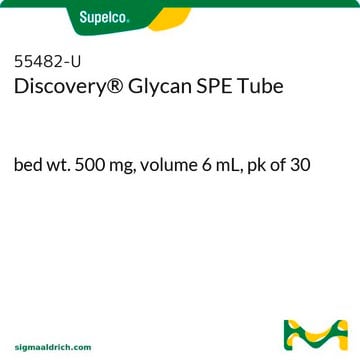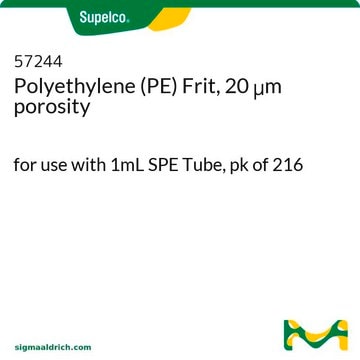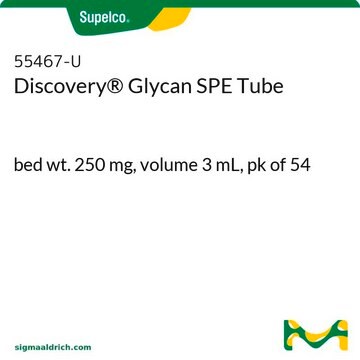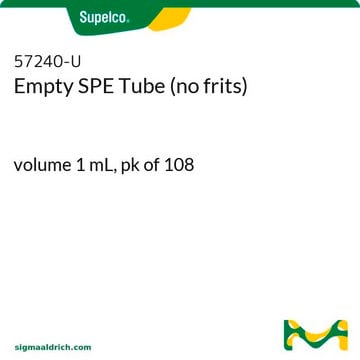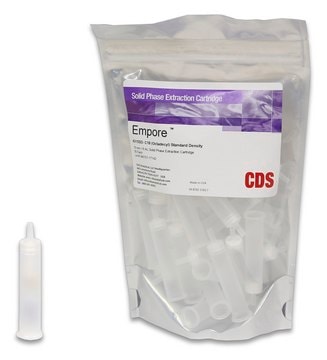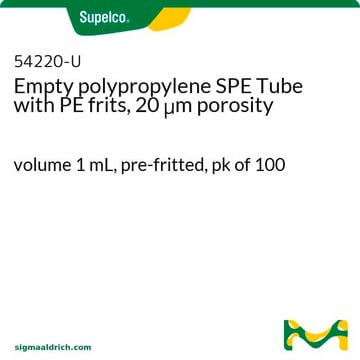55508-U
Discovery® Glycan SPE Bulk Packing
pkg of 50 g
About This Item
Productos recomendados
packaging
pkg of 50 g
Quality Level
technique(s)
solid phase extraction (SPE): suitable
impurities
<5% Water content
matrix
polyamide resin base material
matrix active group
amide, poly- phase
particle size
50-160 μm
pH range
4.5-7.5(surface pH)
bulk density
0.2‑0.3 g/mL
separation technique
reversed phase
Categorías relacionadas
General description
Sample Matrix Compatibility: Aqueous or methanolic solutions
- Polyamide Resin: Particle Size: 50-160 μm, Surf pH: 4.5-7.5, Density: 0.2-0.3 cm3/g, Water Content: < 5 %
- Useful for extracting gylcans from aqueous solutions.
- Used to adsorb polar compounds (-OH groups, esp. phenolic compounds) from aqueous or methanolic solutions under the reversed-phase mechanism through strong hydrogen bonding between compound hydroxyl groups and amide groups of the resin
- Also may be used for the extraction of tannins, chlorophyll, humic acid, pharmacologically active terpenoids, flavanoids, gallic acid, catechol A, protocatechuic acid, phloroglucinol, aromatic carboxylic acids, and nitroaromatic compounds
- Irreversibly retains quinones.
Legal Information
Storage Class
11 - Combustible Solids
wgk_germany
WGK 3
flash_point_f
Not applicable
flash_point_c
Not applicable
Elija entre una de las versiones más recientes:
¿Ya tiene este producto?
Encuentre la documentación para los productos que ha comprado recientemente en la Biblioteca de documentos.
Artículos
Reversed-phase interaction will retain most molecules with hydrophobic character; it is very useful for extracting analytes that are very diverse in structure within the same sample.
Nuestro equipo de científicos tiene experiencia en todas las áreas de investigación: Ciencias de la vida, Ciencia de los materiales, Síntesis química, Cromatografía, Analítica y muchas otras.
Póngase en contacto con el Servicio técnico